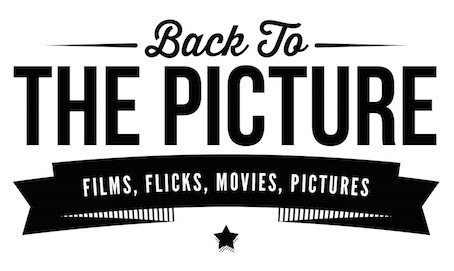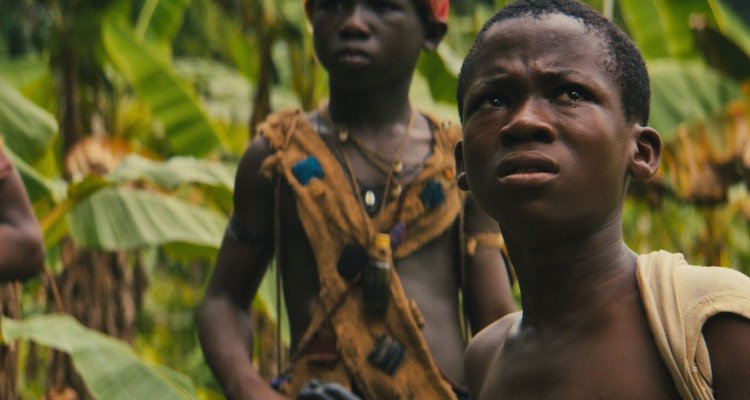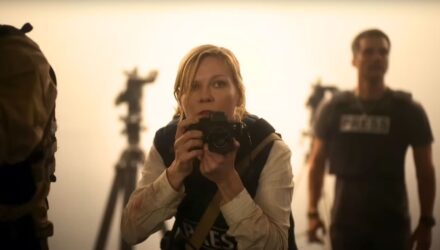This film is hard to watch…in a good way. I don’t mean that it’s hard to watch because it is poorly made, incoherent, or boring. I mean that you’re going to see some things, and you’re not going to like them. The unabashed reality that this film portrays is harsh, to say the least. And by the end, you feel like you’ve been yanked headfirst through the war-torn nation the film is set in. And yet, at the end, I’m not sure what I’ve gleaned through the experience.
Let’s go over this film piece by piece. Cinematography: check. Cary Fukanaga not only wrote the screenplay and directed the film, but he shot it as well. And if you learn nothing else from this film, you’ll learn that he continues to grow as a shooter. Extremely picturesque yet very naturalized lighting. There are few sources to justify other than the sun and the occasional campfire, but Fukanaga paints some pictures here.
Acting: check. Idris Elba is remarkable as always, and I’d be surprised if he doesn’t get a Supporting Actor nomination for this. His character is at once unbelievable and completely real, and as the script delves deeper into his motivations, Elba pulls out the human beneath the monster that would create child soldiers. The real story here, however, is Abraham Attah, who plays the young boy Agu around whom the film centers. Able to do more with silence than most actors can do with an entire script, Attah might be the most honest actor I’ve seen so far this year. So much of this film relies on silent, lingering reaction shots on Attah, and he pulls it off with ease and incredible authenticity. In fact, I believe that one of the reasons that Agu’s monologue at the end falls so flat is because we’ve spent the past two hours watching him do more with less. (To be fair, I think there are story and character issues at play here as well, so it would be tough to pull off regardless.) And I must mention the scene-stealing Emmanuel Nii Adom Quaye as Strika, the only real character with less lines than Agu. He looks truly more battle hardened than anyone else in this film or any other war film I’ve ever seen, for that matter. Oh, and he’s like, ten years old.
Production design is right on. I can’t speak to the actual authenticity to the African culture the film attempts to portray, but within the context of the film, it felt real and lived in. From the small villages, to the jungle, to the larger towns and cities, I felt the grit of every detail.
My main issue with this film is what it seems to say, or rather, what, in my opinion, it doesn’t. After a completely harrowing journey through every horrible thing you can imagine, what is Fukanaga trying to say? What is the core idea of this film? If the film has one, it is neither communicated clearly enough to be understood, nor sharp enough to be unique.
I would contend this extends from the lack of an active protagonist. Much like the audience, Agu is pulled into each circumstance. He is reactively forced to flee his home, and though it could be argued that he makes the choice to become a soldier (and then subsequent choices to kill) the film hardly makes a case that he had other options. Of course, that is the whole point. It is a film about the manipulation of children into becoming child soldiers. It is a film about controlling children whose minds can be easily swayed. And I believe therein lies the root of the problem. To make Agu an active protagonist would take away from the brutal subject matter the film portrays. To make Agu a flawed character, in need of an internal change, would take away from his innocence necessary to the reality of the film.
And I believe this is the larger reason Agu’s monologue at the end doesn’t play. We haven’t witnessed a true character arc. I cannot believe this boy has become so suddenly self-aware or emotionally mature to see himself within the larger context he presents. His catharsis (and ours) is unearned, because he has not undergone a journey of character but simply a steep descent, reactively, into the horrors of war. The first real choice he makes occurs in the last scene in the film. So ultimately, the film felt like an extremely dramatic documentary, simply without the finer details.
It truly is a remarkable film, and emotional to say in the least. It definitely made me feel some things, but without a real arc for these characters and no core idea, it left me wondering, “Why did you just make me go through all that?”
8.2
Lost Arc
Story
6
Cinematography
9.5
Acting
9
Editing
8.5
Design
8





